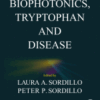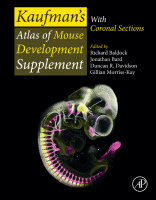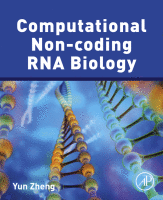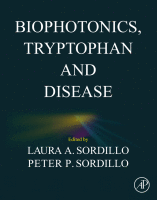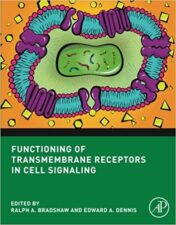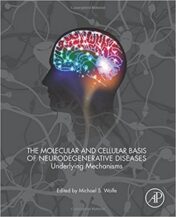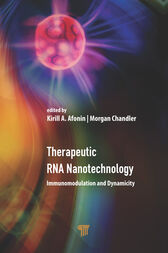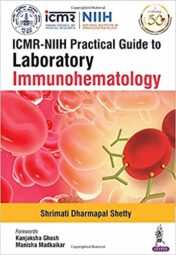Brain Lipids in Synaptic Function and Neurological Disease Clues to Innovative Therapeutic Strategies for Brain Disorders 2015 Original pdf
$15
Brain Lipids in Synaptic Function and Neurological Disease Clues to Innovative Therapeutic Strategies for Brain Disorders 2015 Original pdf
Lipids are the most abundant organic compounds found in the brain, accounting for up to 50% of its dry weight. The brain lipidome includes several thousands of distinct biochemical structures whose expression may greatly vary according to age, gender, brain region, cell type, as well as subcellular localization. In synaptic membranes, brain lipids specifically interact with neurotransmitter receptors and control their activity. Moreover, brain lipids play a key role in the generation and neurotoxicity of amyloidogenic proteins involved in the pathophysiology of neurological diseases. The aim of this book is to provide for the first time a comprehensive overview of brain lipid structures, and to explain the roles of these lipids in synaptic function, and in neurodegenerative diseases, including Alzheimer’s, Creutzfeldt-Jakob’s and Parkinson’s. To conclude the book, the authors present new ideas that can drive innovative therapeutic strategies based on the knowledge of the role of lipids in brain disorders.
Related Products
Basic Sciences Books
Advances in Molecular Pathology 2021 (Original PDF from Publisher)
Basic Sciences Books
Advances in Molecular Pathology 2020 (Original PDF from Publisher)
Basic Sciences Books
Advances in Molecular Pathology 2019 (Original PDF from Publisher)
Basic Sciences Books
Advances in Molecular Pathology 2018 (Original PDF from Publisher)
Basic Sciences Books
Ultrasonic Scattering in Biological Tissues (Original PDF from Publisher)
Molecular Biology Books
Nanomaterials and Nanotechnology in Medicine 2022 Original PDF
Molecular Biology Books
Molecular Biology of the Cell, Seventh edition 2022 Original PDF
Molecular Biology Books
Molecular Biology Books
Tissue Engineering: Applications and Advancements 2021 Original PDF
Molecular Biology Books
Bioinformatics and Computational Biology: A Primer for Biologists 2021 Original PDF
Molecular Biology Books
Molecular Biology Books
Molecular Biology Books
Molecular Biology Books
Molecular Biology Books
Molecular Biology Books
Molecular Biology Books
Histología y biología celular (5ª ed.) 2020 EPUB + Converted PDF
Molecular Biology Books
Advances in Molecular Pathology 2021 2021 EPUB3 + Converted PDF
Molecular Biology Books
Histology and Cell Biology: Examination and Board Review, Sixth Edition 2021 Original PDF
Molecular Biology Books
Molecular Biology Books
Molecular Biology Books
Personale Medizin Zur Anthropologie von Krankheit und Gesundheit 2021 Original pdf
Molecular Biology Books
An Introduction to Molecular Evolution and Phylogenetics 2021 Original pdf
Molecular Biology Books
Molecular Biology Techniques A Classroom Laboratory Manual 2020 original pdf
Molecular Biology Books
Molecular Basis of Nutrition and Aging A Volume in the Molecular Nutrition Series 2016 original pdf
Molecular Biology Books
Molecular Biology Books
Molecular Biology Books
Molecular Biology Books
Molecular Biology Books
Molecular Biology Books
Kaufman’s Atlas of Mouse Development Supplement Coronal Images 2015 Original pdf
Molecular Biology Books
Introductory Review on Sirtuins in Biology, Aging, and Disease 2018 Original pdf
Molecular Biology Books
Molecular Biology Books
Molecular Biology Books
Handbook of Hormones Comparative Endocrinology for Basic and Clinical Research 2015 Original pdf
Molecular Biology Books
Molecular Biology Books
Emerging Concepts in Ribosome Structure, Biogenesis, and Function 2021 Original pdf
Molecular Biology Books
Molecular Biology Books
Calculations for Molecular Biology and Biotechnology 2016 Original pdf
Molecular Biology Books
Molecular Biology Books
AGO-Driven Non-Coding RNAs Codes to Decode the Therapeutics of Diseases 2019 Original pdf
Molecular Biology Books
Advances in Application of Stem Cells: From Bench to Clinics 2021 original pdf
Molecular Biology Books
Viruses Molecular Biology, Host Interactions and Applications to Biotechnology 2018 original pdf
Molecular Biology Books
Molecular Biology Books
The Role of Glycosylation in Health and Disease 2021 Original pdf
Molecular Biology Books
Molecular Biology Books
Transduction Mechanisms in Cellular Signaling : Cell Signaling Collection (PDF) 2011
Molecular Biology Books
Molecular Biology Books
The Molecular and Cellular Basis of Neurodegenerative Diseases : Underlying Mechanisms (PDF) 2018
Molecular Biology Books
Molecular Biology Books
Molecular Biology Books
Molecular Pathology, An Issue of Surgical Pathology Clinics, EBook Original PDF
Molecular Biology Books
Molecular Biology Books
Molecular Biology Books
Introduction to Diagnostic Microbiology for the Laboratory Sciences Original PDF 2020
Molecular Biology Books
Molecular Biology Books
Handbook of Lipid Membranes: Molecular, Functional, and Materials Aspects (Original PDF)
Molecular Biology Books
Molecular Biology Books
Molecular Biology Books
ICMR-NIIH Practical Guide to Laboratory Immunohematology Original PDF 2020
Molecular Biology Books
Endoscopic Diagnostics in Biomedicine: Instrumentation and Applications (ORIGINAL PDF)
Molecular Biology Books
Molecular Biology Books
Tietz Fundamentals of Clinical Chemistry and Molecular Diagnostics, 8th Edition (Original PDF)
Molecular Biology Books
Molecular Biology Books
Karp’s Cell and Molecular Biology, 9th Edition (Australia and New Zealand Edition) (Original PDF)
Molecular Biology Books
International Review of Cell and Molecular Biology (Volume 354) (Original PDF)
Molecular Biology Books
Molecular Biology Books
Terahertz Biomedical and Healthcare Technologies: Materials to Devices (Original PDF)
Molecular Biology Books
Molecular Biology Books
Activity-Based Protein Profiling (Current Topics in Microbiology and Immunology)
Molecular Biology Books
Molecular Biology Books
Enzyme Active Sites and their Reaction Mechanisms (Original PDF)
Molecular Biology Books
Molecular Biology Books
Molecular Biology Books
Error and Fraud: The Dark Side of Biomedical Research (Original PDF)
Molecular Biology Books
Molecular Biology Books
Molecular Biology Books
Gene Cloning and DNA Analysis: An Introduction 7th Edition (EPUB+Converted PDF)
Molecular Biology Books
Molecular Dynamics of Nanostructures and Nanoionics: Simulations in Complex Systems (Original PDF)
Molecular Biology Books
Stem Cells: Scientific Facts and Fiction, 3rd Edition (Original PDF)
Molecular Biology Books
Medicina nel laboratorio: Gli esami: quando, come e perché (Italian Edition) (EPUB+Converted PDF)
Molecular Biology Books
In Situ Molecular Pathology and Co-expression Analyses, 2nd Edition (Original PDF)
Molecular Biology Books
Snyder and Champness Molecular Genetics of Bacteria (ASM Books), 5th Edition (Original PDF)
Molecular Biology Books
Molecular Biology Books
Molecular Biology Books



